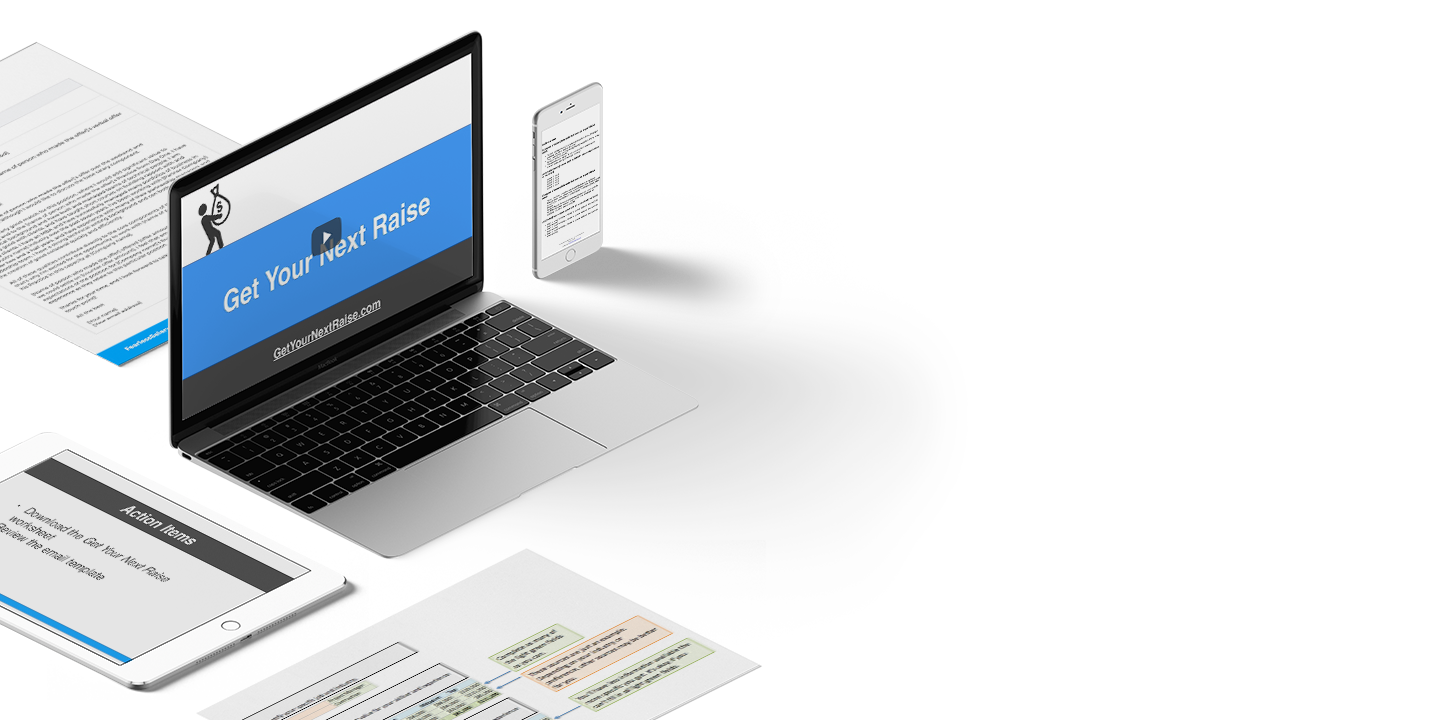Negotiating a promotion
How to write a promotion request letter to ask your boss for a promotion
by Josh Doody
The best way to prepare your case for a promotion is to write it down. If you struggle to write a solid case for your promotion, that’s a good sign that you have more work to do.
So you’ll write your case in the form of a promotion request letter, then talk to your manager about your promotion once you’re confident in your case, then send your letter as a follow-up after your discussion.
That means your promotion request letter will not only help you prepare your case to ask for your promotion, but it will serve as a written summary of your request later on so it’s easy for boss to navigate the internal approval process to grant your promotion.
What to include in your promotion request letter
Here’s a short list of the main components of an effective promotion request letter:
- Address it to your manager
- Detailed subject line
- Friendly greeting
- Introduction and request
- Your accomplishments
- Your accolades
- Conclusion and summary of your request
- Signoff and signature
Here’s what your case for a promotion will look like once you’ve written it down. I’ve numbered each section in brackets so we can talk about it afterward.
[1. Address] To: [Your manager]
[2. Subject] Subject: [Your name] promotion discussion—follow-up
[3. Greeting] Hi [Your manager's name]
[4. Introduction and request] Thanks for your time the other day. As I mentioned in our conversation, I would like to be considered for a promotion to [target job title].
[5. Accomplishments Intro] I’ve been working very hard to prepare for this opportunity, and I think I am ready. Here are some of my accomplishments over the past several months:
[6. Accomplishments]
- Activity to result
- Activity to result
- Activity to result
- Activity to result
[7. Accolades Intro] And here is some feedback I’ve received from clients and coworkers over the past several months—their feedback speaks louder than anything I could say:
[8. Accolades]
- Client or coworker name—"Quote" or general feedback documented in email or survey
- Client or coworker name—“Quote” or general feedback documented in email or survey
- Client or coworker name—“Quote” or general feedback documented in email or survey
[9. Conclusion and repeated request] I believe the accomplishments and feedback above show that I am ready for this move, and for greater responsibility and compensation. I look forward to hearing what else you need from me to help make this happen.
[10. Signoff and signature] Thanks again for your time and consideration!
All the best
[Your name]
Now, all you need to do is go through the template and replace anything in bold with the appropriate piece of information. This should be pretty easy because you’ve already done all the hard work. Feel free to edit this email to make it your own. This is just a template to get you started and show you the bare necessities you should include to make this as useful as possible.
Let’s go section by section to build your email and make your case.
Address it to your manager
Remember, you should send this letter after requesting a promotion from your manager. So you’re addressing this email to your manager as a follow-up to a previous conversation.
Detailed subject line
This email is your written promotion request, so you want everything to be as clear and obvious as possible. Include your name and explicitly state that this email is about your promotion request so that there are no surprises for anyone who might read it later on.
Something like this should do: “[Your name] promotion discussion—follow-up”
Friendly greeting
Keep it short, sweet, and friendly: “Hi [manager’s name]” will do. I’m assuming you’ll send this to your manager after your request, so If you’re sending it to someone else, you’ll want to change that to their name.
Introduction and request
Cut right to the chase and make it brief. Be as specific as possible about which job you’re pursuing. You need to request a promotion to a specific position or title, so make sure to include that in your request.
In other words, you’re not just asking for a promotion, you’re asking for a promotion to a specific position or title.
Remember, this email will be sent as a summary after your conversation with your manager has already happened. So you won’t send this email cold—it will be a follow-up to a verbal conversation if at all possible.
It might help to include “Thanks for your time the other day.” or some other subtle reminder that this is a follow-up the conversation you already had about this promotion request.
Your accomplishments
Your accomplishments should be described as an activity that had a positive business result. What did you do, and what was the impact to the business?
Lay out your case as succinctly as possible. You should list no more than five accomplishments, so be sure to pick your strongest ones. This email isn’t a complete historical record of everything you’ve ever done for the company. This is a skimmable document that makes a strong case for whoever is holding the purse strings to give you a promotion. You want the person reading this to think, “It looks like he’s already doing this. Why haven’t we already promoted him?”
Are you ready for this promotion?
One of the benefits of preparing your case ahead of time is that you can be confident that your case is strong before you present it. If you have trouble with this section, that’s a red flag that your case may not be as strong as you anticipated, and you may not be ready to ask for this promotion. This isn’t an ironclad rule, but I recommend covering a reasonable amount of time (several weeks or a few months) in this section so that your case is as compelling as possible when you present it.
Your accolades
Your accolades should be awards, praise, or even client emails that describe your outstanding work.
Again, this should be brief, but should highlight your best results from the past six months to a year. This isn’t a complete record, it’s a skimmable list that should raise eyebrows when others see it. Remember that the person approving a promotion may not know who you are, so you’re giving them a short summary of your accolades to let them know that they should be impressed with you because other people are impressed with you.
This section is less crucial than the “Accomplishments” section, but it really helps. If you have trouble completing this part, you may still move forward with your request, or you may not. Some jobs are very solitary and simply don’t garner accolades from clients or peers. I strongly recommend you have at least a couple items in this section before you present your case, but if your “Accomplishments” section makes a very strong case on its own, this section may not be necessary.
Conclusion and summary of your request
By now, your email may be lengthy. You’ve asked for a promotion to a specific position or job title, you’ve laid out your accomplishments demonstrating that you’re already doing the job, and you’ve included some accolades to show that others have noticed your work.
Before your sign off, re-state your request and make your case again as concisely as possible—no more than two or three sentences—so your manager and anyone who might need to approve your promotion request can easily understand your case in just a few sentences.
Signoff and signature
Thank your manager for her time and keep it brief.
Everything has now come together so that you know what you’re pursuing, and you have a written case that summarizes why you should be promoted. This should help clarify your own objectives, and it will provide a handy reference for you as you present your case.
Once you’ve presented your case to your manager, you should follow up wiht your promotion request email to document your request and make it easy for your manager to circulate your request for approval.
Articles you may also like
- A salary negotiation email (to negotiate your starting salary)
- A salary increase letter to ask your boss for a raise
- How to answer the “What’s your expected salary?” question
- How to negotiate salary: 9 tips from a pro salary negotiator
- Got a job offer from Amazon? Learn how to negotiate your salary

